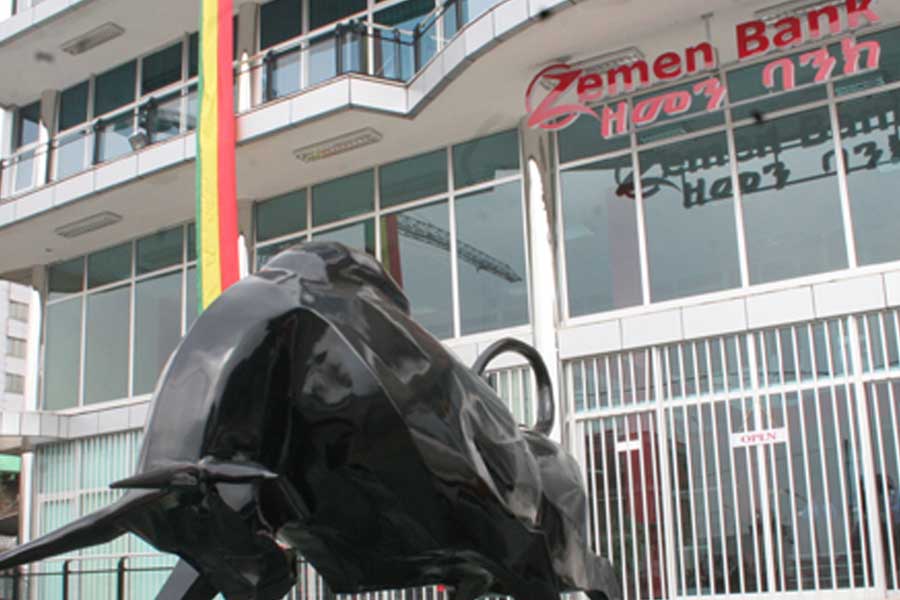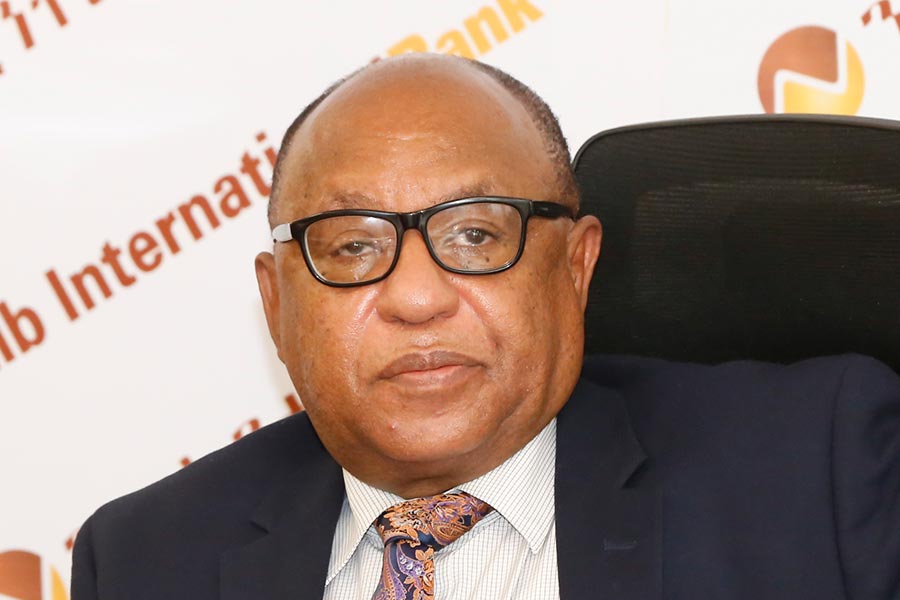
Fortune News | Dec 26,2020
Nov 30 , 2024
By Howard Davies
The scars of the financial crisis may be fading, but the debates over ensuring it does not repeat are far from over. The upcoming months will be crucial for the future of global banking supervision as the US, the EU, and the UK oversee their leadership transitions. The hope remains that a common ground will soon be found in this regulatory chess game, Howard Davies, a former deputy governor of the Bank of England, and chairman of NatWest Group, argued in this commentary provided by Project Syndicate (PS).
In 2023, emboldened – or perhaps stung – by the failures of Silicon Valley Bank and a few other mid-size institutions, the US Federal Reserve proposed a tough interpretation that would have increased capital requirements for American banks by 19pc, on average. But, pushback from the financial industry, led by Jamie Dimon of JPMorgan, was fierce, with Super Bowl halftime commercials warning Americans that small firms and middle-class households would pay the price for such a policy.
So the Fed backed off, reconsidered its position, and devised new proposals that would have halved the impact of its original recommendations. But these watered-down measures are also in doubt. Even before Donald Trump’s impending return to the White House raised the possibility of changes in personnel, the Federal Deposit Insurance Corporation signalled that it would not back them.
Those who oppose any foreign entanglements that could tie up the US financial system have been emboldened. Steve Forbes, of the eponymous magazine, argues that, “One of the first tasks of the Trump Treasury Department should be to abandon the Basel regime of banking regulations.” And Gene Ludwig, a former comptroller of the currency, has suggested that “the Basel endgame rule could be completely dead.”
Is it all over for Basel 3.1 (or what is known in the United States as the “Basel Endgame”)? Should we kiss goodbye to the Basel Committee and the very idea of global banking supervision accords establishing minimum capital requirements?
Many informed people think so. The committee’s recommendations have long been assailed from all sides, especially the western shores of the Atlantic.
Nor is the climate for rule-makers much more favourable in Europe. French President Emmanuel Marcon has told the European Commission that, faced with this American backsliding, it needs to rethink its Basel 3.1 implementation plans: “[the EU] cannot be the only economic area in the world that applies [it].” The issue has become politically sensitive, with European banks losing European market share to the Americans.
Even the Bank of England (BoE) is under pressure. It played a key role in launching the Basel Committee back in the 1980s, and it normally adheres closely to the agreements reached there. But Britain’s new Chancellor of the Exchequer has argued that regulators should do more to promote competitiveness and growth. Further increases in bank capital, especially for lending to small businesses, are hard to reconcile with that objective.
The Basel Committee’s new chair, Erik Thedeen of the Swedish central bank, has his work cut out for him.
Can he keep the show on the road?
One problem is that there is very little international agreement on the facts. It is far from certain that the simple question of whether US banks will be as well capitalised as EU banks after the implementation of Basel 3.1 will have a straightforward answer. US banks think the Fed’s proposals would put them at a competitive disadvantage, whereas Macron thinks the opposite. European banks regularly point to a 2023 Oliver Wyman report showing that big EU banks have a Common Equity Tier 1 ratio (the main comparable measure of bank capitalisation) more than three percentage points above that of their US counterparts.
But the plot has thickened. The Financial Times reports that the European Central Bank’s (ECB) research comes to the opposite conclusion: “Capital requirements for big EU lenders would rise by a double-digit percentage if they had the same rule as their large Wall Street rivals.” Unfortunately for those who seek the truth, the ECB is split on whether to publish its paper, which remains under wraps in Frankfurt. The political awkwardness of the situation is obvious.
Surprisingly, a process that began after the global financial crisis has reached an impasse at such a late stage. The core provisions of Basel III were first published in November 2010, after a very rapid work program. The latest iteration was presented as a mere “tidying up” exercise. But it is proving more contentious than the main accord. Part of the problem is that the political impetus for reform has waned. The driving force was the G20, which forced regulators to move fast and break things after the crisis. But we heard very little about Basel at the group’s summit in Brazil this month.
Apparently, the financial crisis is being consigned to history.
This is unfortunate, and regulators will undoubtedly say that reports of Basel’s death have been much exaggerated. But, unless the patient receives urgent attention, s/he may well expire. Sooner or later, countries that have already implemented the new rules – such as Australia and Singapore – will begin to cry foul, whereupon the process could unravel entirely.
The US, the European Union, and the United Kingdom (UK) will be obliged to call a time-out over the northern winter. The US will have a new Treasury Secretary, Scott Bessent, and the EU a new Commissioner for financial markets, Maria Luis Albuquerque. Both will need to get settled in. But they also will need to get together soon. The stakes are high, and the situation resembles Samuel Beckett’s Waiting for Godot more than his Endgame. Godot had better turn up soon.
PUBLISHED ON
Nov 30,2024 [ VOL
25 , NO
1283]


Fortune News | Dec 26,2020

Commentaries | Apr 30,2022

Fortune News | Mar 16,2019

Commentaries | Nov 05,2022

Fortune News | Feb 17,2024

Radar | Apr 24,2023

Radar | Dec 24,2022

Commentaries | Oct 07,2023

Radar | Jan 27,2024

Agenda | Sep 04,2021

My Opinion | 131766 Views | Aug 14,2021

My Opinion | 128149 Views | Aug 21,2021

My Opinion | 126095 Views | Sep 10,2021

My Opinion | 123717 Views | Aug 07,2021

Dec 22 , 2024 . By TIZITA SHEWAFERAW
Charged with transforming colossal state-owned enterprises into modern and competitiv...

Aug 18 , 2024 . By AKSAH ITALO
Although predictable Yonas Zerihun's job in the ride-hailing service is not immune to...

Jul 28 , 2024 . By TIZITA SHEWAFERAW
Unhabitual, perhaps too many, Samuel Gebreyohannes, 38, used to occasionally enjoy a couple of beers at breakfast. However, he recently swit...

Jul 13 , 2024 . By AKSAH ITALO
Investors who rely on tractors, trucks, and field vehicles for commuting, transporting commodities, and f...

Jul 5 , 2025
Six years ago, Ethiopia was the darling of international liberal commentators. A year...

Jun 28 , 2025
Meseret Damtie, the assertive auditor general, has never been shy about naming names...

Jun 21 , 2025
A well-worn adage says, “Budget is not destiny, but it is direction.” Examining t...

Jun 14 , 2025
Yet again, the Horn of Africa is bracing for trouble. A region already frayed by wars...

Jul 6 , 2025 . By BEZAWIT HULUAGER
The federal legislature gave Prime Minister Abiy Ahmed (PhD) what he wanted: a 1.9 tr...

Jul 6 , 2025 . By YITBAREK GETACHEW
In a city rising skyward at breakneck speed, a reckoning has arrived. Authorities in...

Jul 6 , 2025 . By NAHOM AYELE
A landmark directive from the Ministry of Finance signals a paradigm shift in the cou...

Jul 6 , 2025 . By NAHOM AYELE
Awash Bank has announced plans to establish a dedicated investment banking subsidiary...